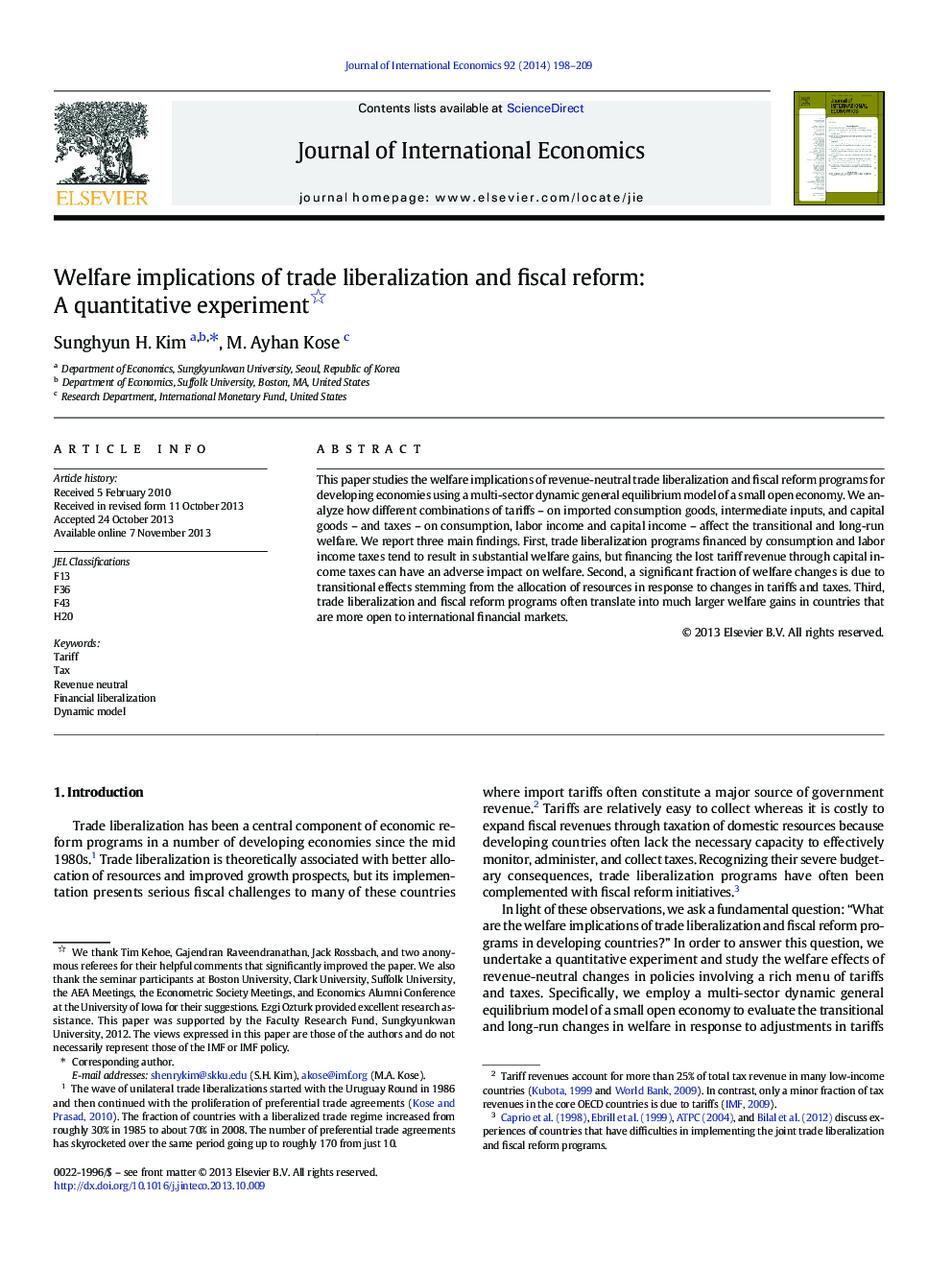| Article ID | Journal | Published Year | Pages | File Type |
|---|---|---|---|---|
| 962476 | Journal of International Economics | 2014 | 12 Pages |
Abstract
This paper studies the welfare implications of revenue-neutral trade liberalization and fiscal reform programs for developing economies using a multi-sector dynamic general equilibrium model of a small open economy. We analyze how different combinations of tariffs - on imported consumption goods, intermediate inputs, and capital goods - and taxes - on consumption, labor income and capital income - affect the transitional and long-run welfare. We report three main findings. First, trade liberalization programs financed by consumption and labor income taxes tend to result in substantial welfare gains, but financing the lost tariff revenue through capital income taxes can have an adverse impact on welfare. Second, a significant fraction of welfare changes is due to transitional effects stemming from the allocation of resources in response to changes in tariffs and taxes. Third, trade liberalization and fiscal reform programs often translate into much larger welfare gains in countries that are more open to international financial markets.
Related Topics
Social Sciences and Humanities
Economics, Econometrics and Finance
Economics and Econometrics
Authors
Sunghyun H. Kim, M. Ayhan Kose,
